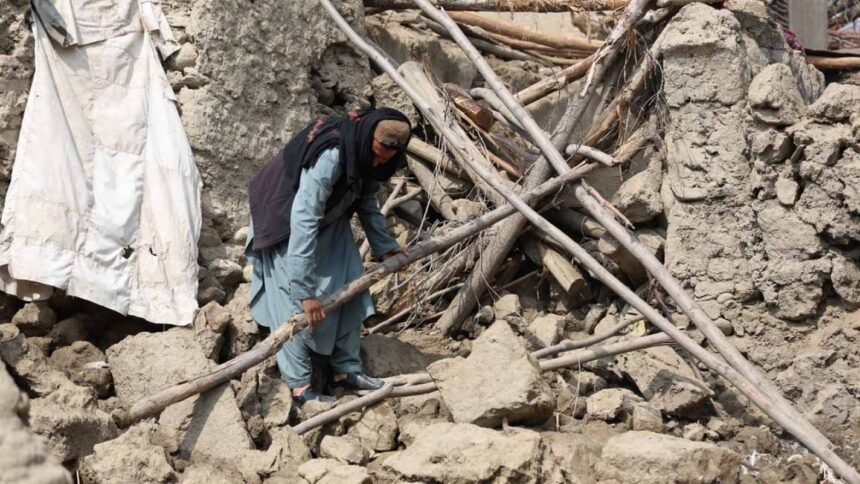A 4.7-magnitude earthquake jolted Fayzabad, a city in northeastern Afghanistan, earlier today. The quake’s epicenter was recorded at a depth of 10 kilometers beneath the earth’s surface.
Residents in Fayzabad reported feeling the tremors, which lasted for several seconds. Many people rushed out of their homes in fear as the ground shook. Fortunately, there have been no immediate reports of casualties or major damage caused by the earthquake.
Afghanistan is situated in a seismically active region, and earthquakes are not uncommon. The country is vulnerable to seismic activity due to its location along the boundary of the Indian and Eurasian tectonic plates. As these plates interact with each other, they generate stress that can result in earthquakes.
The depth of this earthquake, at only 10 kilometers, is considered relatively shallow. Shallow earthquakes have the potential to cause more significant ground shaking and can be more destructive than deeper ones. However, the extent of the damage is often influenced by various factors, including the earthquake’s proximity to populated areas and the quality of construction in those areas.
More About The Current Situation
Seismologists and experts are closely monitoring the situation in Fayzabad to assess any potential aftershocks that may follow the initial quake. Aftershocks are smaller tremors that can occur in the days and weeks following a significant earthquake, and they can pose additional risks to structures already weakened by the initial quake.
Local authorities are urging residents to remain vigilant and take necessary precautions in the event of further seismic activity. This includes staying away from damaged buildings, checking for gas leaks, and having an emergency kit ready with essentials such as water, food, and first-aid supplies.
The government of Afghanistan, in collaboration with international organizations, has been working to improve earthquake preparedness and response measures in recent years. This includes conducting public awareness campaigns and strengthening building codes to ensure greater resilience in the face of seismic events.
While today’s earthquake in Fayzabad serves as a reminder of the region’s vulnerability to earthquakes, it also highlights the importance of continued efforts to enhance earthquake preparedness and resilience. As the situation unfolds, authorities will continue to assess and respond to any developments to ensure the safety and well-being of the affected population.
